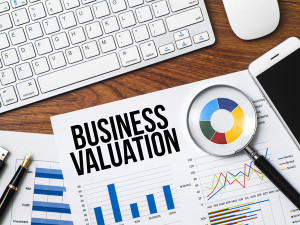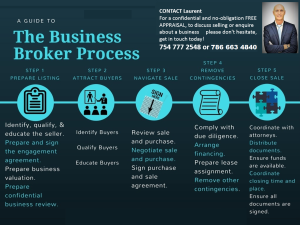
Why is Due Diligence Important When Buying a Business ?
Buying a business requires that you, the buyer, make an informed decision before closing the deal. Researching about the business starts the moment you are thinking about buying a business. Start making inquiries from your friends and entrepreneurs in the same industry.
You should read trade and industry publications, and search the Internet. If you like the preliminary information you heard or read from your initial meeting with the seller, make an offer. If the seller accepts this, he or she will grant you a period of time, usually a month to several months, to access the company’s records and books. Take this time to know everything about the company you intend to buy. Get a realistic picture of how the business is performing now and how it is likely to perform in the future. This whole process is known as due diligence.
Why is Due Diligence Important?
You approximate the value of the business for sale.
By reviewing the financial, commercial and operational records of the company and analysing the numbers, you can determine the appropriate price to counteroffer the seller. Make a list of all the assets, particularly everything you want from the business. Are the company name, product brands and other proprietary assets included in the sale? You do not want to be the new owner of a company with branded products only to find out that certain trademarks were not included in the sale.
You project the growth of the business.
Examine the past and current marketing campaigns of the company, as well as the current demands and buying patterns of your target market. This will help you determine emerging opportunities and any potential issues with the business. How much working capital will you need to conduct business operations after the sale, or for your growth plans? Who are the company’s competitors and how can you compete? The answers can spell the future success of the business.
You estimate how much debt or obligations you will take over.
You do not want to end up paying a pile of bills – unpaid suppliers; outstanding rentals and debts; pending litigation; unsettled compensation or unemployment claims of employees; accounts payable; back taxes and lapsed licenses. If you discover a liability not declared by the seller beforehand, you can use this as a bargaining chip to negotiate a lower price or to back out of the deal. A buyer should not accept all information and data given by the seller at face value. You should verify all information.
You learn how the business is run or operated.
Through due diligence, you learn the operational, sales and marketing systems in place; the status of the equipment and the physical plant or office; and business structure. This will help you determine whether to maintain the status quo or to upgrade or institute changes and when.
You evaluate the company’s relationship with the stakeholders – the suppliers, lenders, employees, landlord, customers and creditors.
Do these parties have any complaints against the company? What is the reputation of the company with its customers or clientele? Can the loans, contracts or lease agreements of the company be assigned to the new owner?
You discover the weaknesses and strengths of the business.
If the business is failing, you could identify the causes so you will not make the same mistakes. Are the weaknesses easy to overcome? Should you go ahead with buying the business? If you see that the work force is a huge factor to the success of the business, consider motivational measures to ensure that employees are happy.
Be prepared for due diligence. Make a checklist of questions you want to ask – your Business Broker Laurent Isorez can provide a checklist and help you obtain documents you may require and compile a list of people you want to talk to. Take your time. Impatience is not going to help. Confirm that everything you want in the business is included in the sale. You need to come out of this period knowing what you are getting into, what needs to be fixed, what your total costs are, and if you are the right person to take on the business. Have you prepared your checklist?




